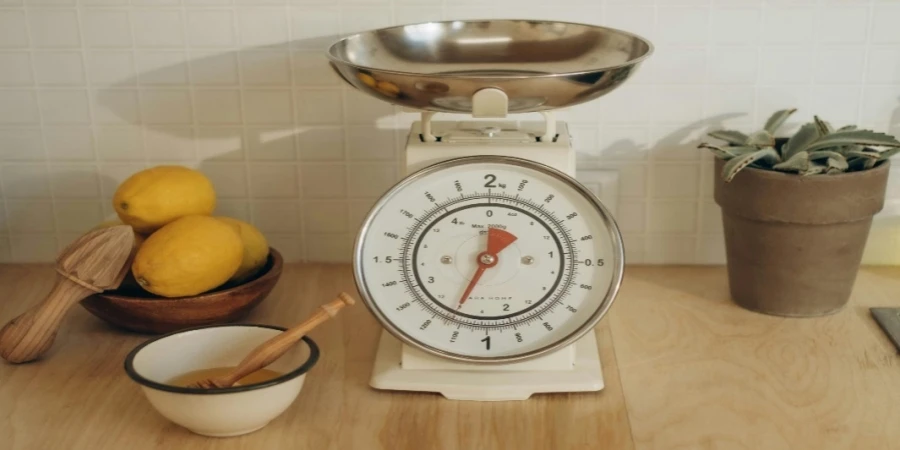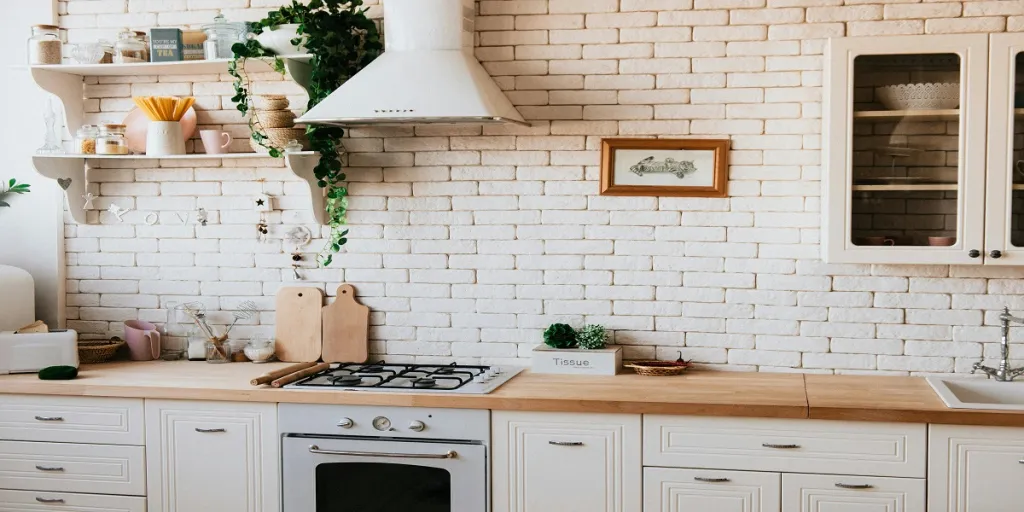Table of Contents
● Introduction
● Market overview
● Different types of kitchen scales
● Things to consider when selecting products
● Conclusion
Introduction
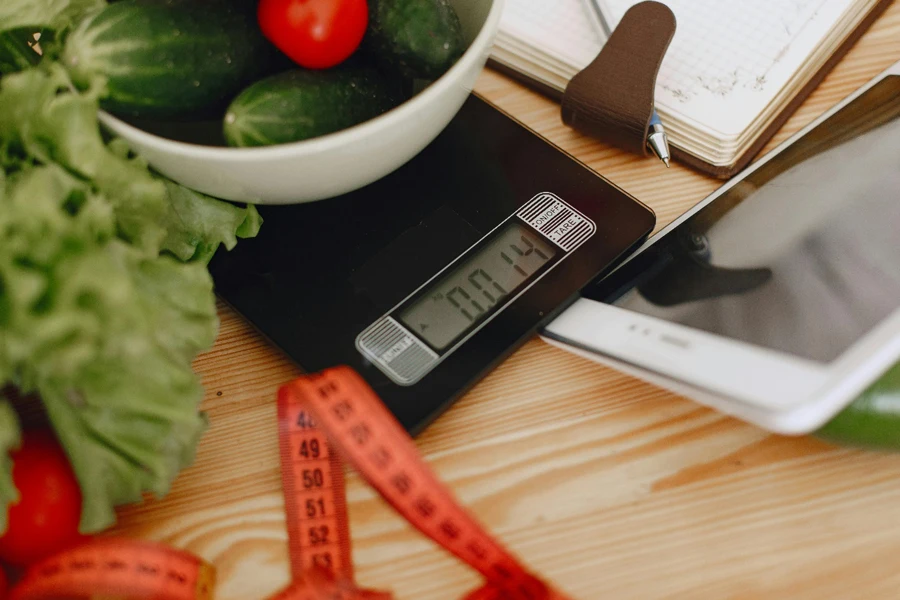
Kitchen scales are indispensable tools in modern kitchens, ensuring precision in cooking and baking. Their ability to measure ingredients accurately aids in achieving consistent results, which is crucial for both amateur cooks and professional chefs. With advancements in technology, kitchen scales now offer features like digital displays, tare functions, and smart connectivity, enhancing their usability and reliability. The market for kitchen scales is expanding, driven by the growing emphasis on healthy eating and the need for precise portion control. Selecting the right kitchen scale can greatly improve culinary efficiency and accuracy, making it a valuable addition to any kitchen.
Market overview
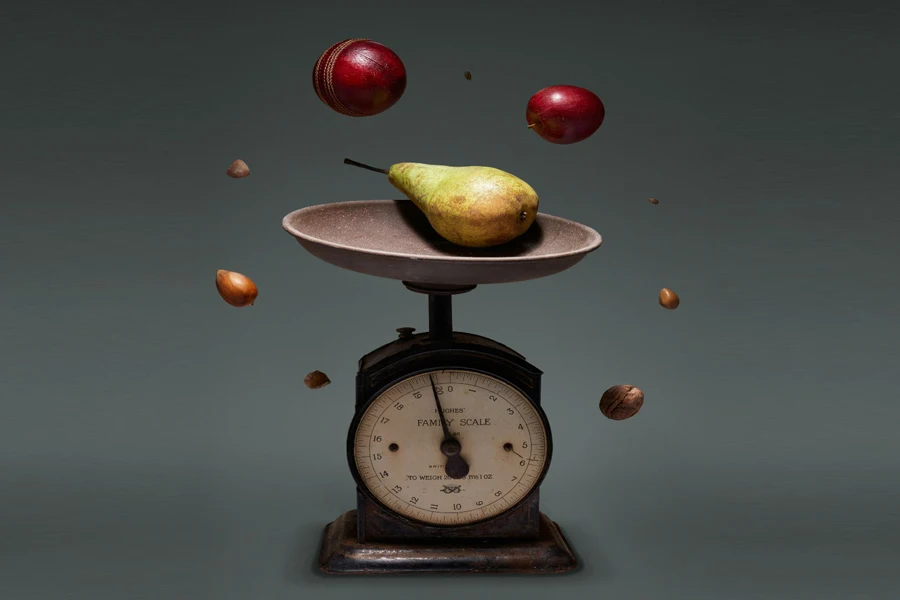
Market scale and growth
The global market for kitchen scales is on a steady growth trajectory, with a projected compound annual growth rate (CAGR) of 4.5% from 2024 to 2034. The market size is expected to increase from USD 564.6 million in 2024 to USD 877.1 million by 2034. This growth is driven by the increasing demand for precision in cooking and baking, as well as the rising awareness of health and nutrition, which necessitates accurate measurement of food portions.
Regional insights
Regionally, the United States leads the market due to its significant obesity rates and the consequent emphasis on weight management. The United Kingdom is also experiencing growth, driven by parental awareness and the integration of advanced technology in baby scales. In China, the market is buoyed by the digital revolution and high production rates of digital devices. Japan’s market growth is fueled by the need for precise weighing solutions in industries like manufacturing and logistics, while India sees a surge in demand driven by the e-commerce boom and government initiatives promoting digital solutions.
Driving trends
Several factors drive the market growth, including the rise in obesity rates globally and the need for precise weight management tools in both personal and healthcare settings. Technological advancements, such as the integration of smart features in kitchen scales, further boost market expansion. However, challenges like maintaining accuracy at higher weight measurements and ensuring regular maintenance and calibration of scales can impede growth. Despite these challenges, the market outlook remains positive, with continued innovation and increasing adoption of digital scales across various regions.
Different types of kitchen scales

Mechanical scales
Mechanical scales feature a spring mechanism that moves a needle on a dial to indicate weight. These scales are often constructed with a metal or plastic base and a stainless steel weighing platform or bowl. Typical mechanical scales can measure up to 10 kg and are calibrated manually using a knob or dial. They provide durability and do not require batteries, making them reliable for long-term use.
Digital scales
Digital scales utilize strain gauge technology to measure weight, providing high accuracy and precision, often down to 0.1 grams. These scales come equipped with an LCD display for easy reading, and most models offer a tare function, which allows users to zero out the weight of containers or multiple ingredients. Digital scales generally operate on batteries or are rechargeable via USB. Capacities range from 5 kg to 10 kg, with some high-precision models capable of measuring minute quantities accurately.
Stainless steel scales
Stainless steel scales are a type of digital scale known for their robust construction and ease of cleaning. The weighing platform is made entirely of stainless steel, which is resistant to rust and corrosion. These scales often feature a waterproof design, allowing them to be cleaned under running water. They maintain the precision of digital scales, with capacities typically ranging from 5 kg to 15 kg.
Balance scales
Balance scales use a dual-pan system where weights are placed on one pan and the item to be weighed on the other. They are often used for high-precision tasks, such as measuring spices or small quantities of chemicals in professional kitchens. These scales are made from materials like brass or stainless steel and can measure very small increments, sometimes as low as 0.01 grams. Calibration weights are used to ensure accuracy.
Smart nutrition scales
Smart nutrition scales integrate with mobile applications via Bluetooth or Wi-Fi to provide detailed nutritional information. They are equipped with advanced sensors that can measure down to 0.1 grams. These scales often feature touch-sensitive controls and high-resolution displays. Some models include voice recognition and barcode scanning to input food data quickly. They can store data for multiple users and track daily, weekly, or monthly nutritional intake.
Hanging scales
Hanging scales are designed to weigh items suspended from a hook, making them ideal for bulky or irregularly shaped items. These scales can measure up to 50 kg or more, depending on the model. They feature a durable metal hook and a reinforced casing to withstand heavy use. Digital hanging scales come with backlit displays and multiple unit options (grams, kilograms, pounds) for versatile usage.
Large capacity scales
Large capacity scales are built for commercial kitchens and can measure weights exceeding 10 kg, with some models supporting up to 50 kg. These scales feature reinforced platforms made from materials like stainless steel or heavy-duty plastic. They often include functions such as tare, hold (to lock the weight display), and unit conversion. Many large capacity scales have integrated carrying handles and are designed for easy portability.
Gram pocket scales
Gram pocket scales are compact and designed for portability, typically weighing up to 500 grams to 5 kg with precision down to 0.01 grams. They feature digital displays and are powered by small batteries like AAA or button cells. These scales often include protective covers and are made from lightweight materials such as plastic and aluminum.
Non-standard models
Non-standard kitchen scales include spoon scales, which have a weighing sensor in the handle, and cup scales, which combine a measuring cup with a digital scale. Spoon scales can measure small quantities (up to 300 grams) with high precision, making them ideal for spices and liquids. Cup scales integrate measurement and weighing, often providing digital readouts on the handle, and are designed to measure both weight and volume.
Things to consider when selecting products

Intended use
When selecting a kitchen scale, the intended use is a crucial factor. Home kitchens typically need scales that are user-friendly, with moderate weight capacities suitable for everyday cooking and baking tasks. These scales often feature straightforward interfaces and compact designs, making them convenient for regular use. In contrast, commercial kitchens require scales that can handle heavier use and larger quantities of ingredients. Industrial-grade scales in commercial settings must be robust, often featuring reinforced components and higher weight limits to withstand continuous and rigorous usage.
Weight limit
The weight limit is a key specification for any kitchen scale. For home use, scales generally have a capacity of up to 5 kg, sufficient for most household cooking needs. However, professional environments require scales with higher capacities, often up to 30 kg or more. These high-capacity scales are essential for accurately measuring bulk ingredients and large batches, ensuring consistency and precision in large-scale food preparation. It’s important to choose a scale that not only meets but exceeds the expected maximum weight to avoid damage and maintain accuracy.
Material quality
The material quality of a kitchen scale significantly impacts its durability and hygiene. Tempered glass platforms are favored for their sleek appearance, resistance to scratches, and ease of cleaning. Plastic scales are lightweight and affordable but may lack the durability needed for heavy-duty use. Stainless steel is highly durable, resistant to rust and corrosion, and easy to sanitize, making it ideal for both home and professional kitchens. Scales with stainless steel platforms are especially suited for environments where maintaining strict hygiene standards is critical, as they can withstand frequent cleaning and harsh detergents.
Special features
Modern kitchen scales come with various special features designed to enhance functionality and convenience. The tare function allows users to zero the scale with a container on it, facilitating the addition and measurement of multiple ingredients in succession without the need to calculate their individual weights. Advanced scales may include features like calorie counting and nutritional analysis, which can display detailed information about the caloric and nutritional content of ingredients. Liquid measurement capabilities allow scales to switch between weight and volume units, which is particularly useful for recipes requiring precise liquid measurements. LED displays provide clear, easy-to-read measurements, and touch-sensitive controls offer a sleek, user-friendly interface. The ability to switch between different units of measurement (grams, ounces, pounds) adds versatility, making it easier to follow diverse recipes accurately.
Smart options
Smart kitchen scales connect to smartphones or tablets via Bluetooth or Wi-Fi, offering advanced functionalities that standard scales do not. These scales can integrate with health and fitness apps to provide real-time nutritional tracking, including detailed breakdowns of macronutrients, vitamins, and minerals. Some smart scales feature voice recognition and barcode scanning, simplifying the process of logging food items. They often support multiple user profiles, making them suitable for households or professional kitchens where dietary monitoring is important. The connectivity feature allows for automatic updates and synchronization with other health devices, providing a comprehensive overview of dietary habits and progress over time.
Conclusion
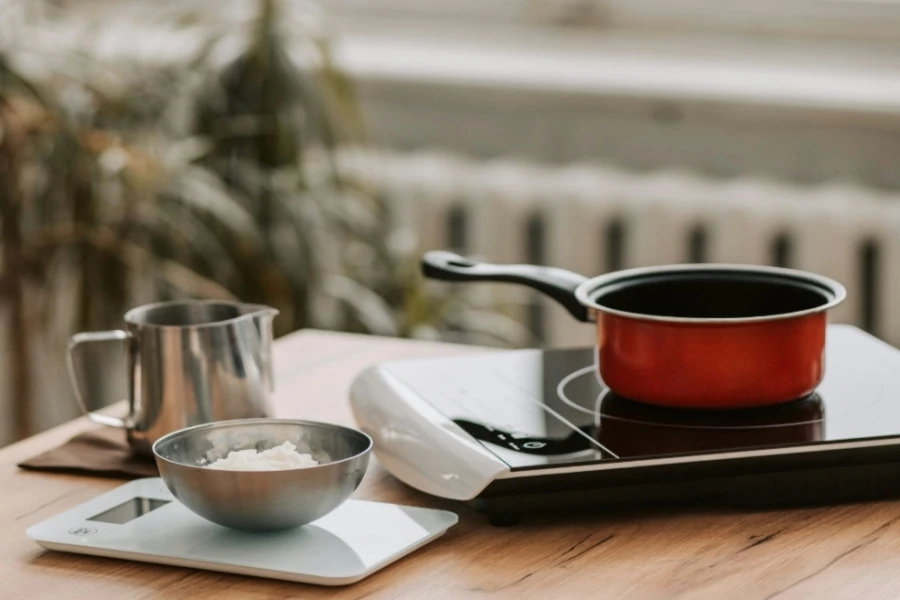
Choosing the right kitchen scale is crucial for achieving culinary precision and efficiency. The variety of scales available, from mechanical to smart nutrition models, cater to different needs, whether for home kitchens or commercial settings. Key considerations include intended use, weight capacity, material quality, and special features like tare functions and nutritional tracking. Good-quality kitchen scales ensure accurate measurements, enhance workflow, and support dietary goals, making them indispensable tools in modern culinary environments.
